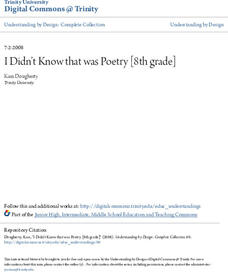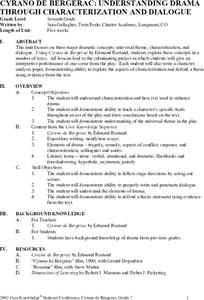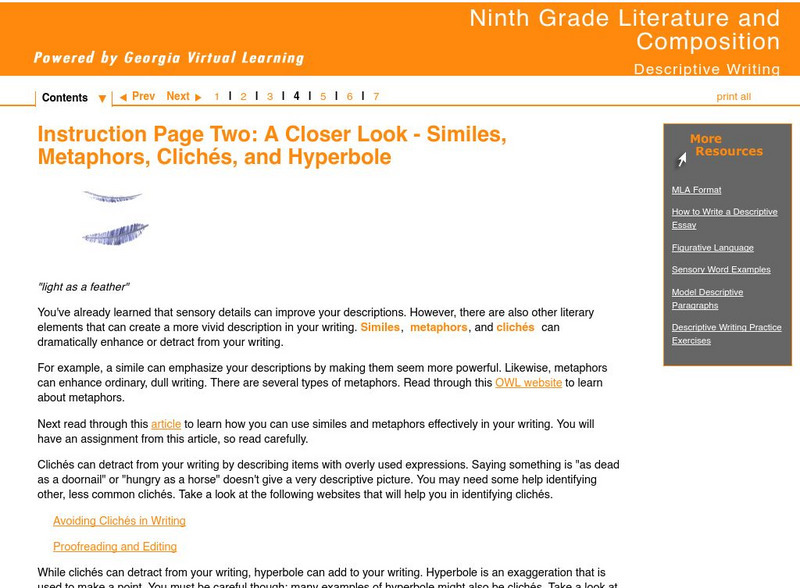Trinity University
I Didn’t Know that was Poetry
Poetry or prose? That is the question facing middle schoolers as they begin a month-long poetry unit by examining the characteristics that differentiate poetry and prose writing. Pupils learn about poetic devices and different types of...
ReadWriteThink
Analyzing Famous Speeches as Arguments
A speaker, a message, an audience. After analyzing these elements in Queen Elizabeth's speech to the troops at Tilbury, groups analyze how other speakers use an awareness of events, and their audience to craft their arguments....
Curated OER
Cyrano De Bergerac: Understanding Drama Through Characterization and Dialogue
Students explore three major dramatic concepts using Cyrano de Bergerac by Edmond Rostand. In this dramatic concepts lesson, students research the concepts of universal theme, characterization, and dialogue using the given text. Students...
Georgia Department of Education
Ga Virtual Learning: Descriptive Writing: Similes, Metaphors, Cliches, Hyperbole
This lesson focuses on figurative language used in descriptive writing including similes, metaphors, cliches, hyperbole. It offers multiple links to websites pertaining to figurative language in descriptive and creative writing; an...
Sophia Learning
Sophia: Writing Narratives
Notes, a PowerPoint presentation, two videos, a song, an exercise, and a game help students to understand how to write a narrative. Elements of a narrative as well as the use of figurative language and sensory images are introduced and...
Texas Education Agency
Texas Gateway: Imagery and Figurative Language (Grade 6)
This lesson focuses on the use of imagery and figurative language in writing to aid understanding and create images in the mind.





